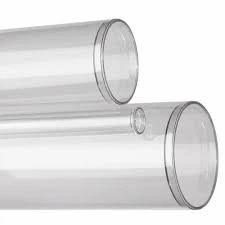Nov . 05, 2024 23:41 Back to list
natural hdpe sheet
Understanding Natural HDPE Sheets Benefits and Applications
High-Density Polyethylene (HDPE) is a widely used thermoplastic polymer known for its strength, durability, and versatility. Among the various forms of HDPE, natural HDPE sheets have garnered significant attention across multiple industries. This article will delve into the characteristics, advantages, and applications of natural HDPE sheets, highlighting their importance in modern manufacturing and construction.
What is Natural HDPE?
Natural HDPE refers to high-density polyethylene in its uncolored, unpigmented form. This state signifies that the material contains no additives or dyes, allowing it to retain its environmentally friendly properties while offering excellent mechanical performance. The natural variant showcases a translucent appearance, which can be particularly appealing in various applications where color aesthetics or transparency is a consideration.
Key Properties of Natural HDPE Sheets
1. Chemical Resistance One of the standout features of natural HDPE is its excellent chemical resistance. It can withstand exposure to many acids, bases, and salts, making it ideal for use in laboratories, chemical processing plants, and other industrial environments.
2. Durability Natural HDPE sheets are highly durable and resistant to impact and wear. This resilience means they can easily handle heavy use, making them suitable for both indoor and outdoor applications.
3. Lightweight Nature Compared to metals and other solid materials, natural HDPE is lightweight. This characteristic simplifies transportation and installation, resulting in reduced costs in project management and logistics.
4. UV Resistance While natural HDPE can degrade over time with prolonged exposure to UV rays, certain formulations can enhance its resistance. This property makes it a popular choice for outdoor applications, where durability against sun exposure is necessary.
5. Recyclability Natural HDPE is 100% recyclable, which aligns with the growing emphasis on sustainability and environmental responsibility in modern industries. This feature not only reduces waste but also promotes circular economy principles.
natural hdpe sheet

Applications of Natural HDPE Sheets
The versatile nature of natural HDPE sheets lends them to a wide range of applications across various sectors
- Manufacturing In manufacturing environments, natural HDPE sheets are used for creating protective barriers, machine covers, and ergonomic workplace designs. Their strength allows them to withstand the rigors of industrial processes without compromising performance.
- Construction In construction, natural HDPE sheets are utilized for waterproofing membranes, insulation boards, and temporary barriers. Their resistance to moisture and chemicals helps protect structural integrity.
- Food Processing With its non-toxic properties, natural HDPE is frequently utilized in the food processing industry. It is safe for food contact and is often found in cutting boards, food containers, and various processing equipment.
- Environmental Applications Natural HDPE sheets are also used in environmental applications, such as landfill liners and pond liners. Their impermeability helps prevent contamination of soil and water sources.
- Packaging The packaging industry benefits from natural HDPE’s durability and lightweight nature. It is commonly used for producing bottles, containers, and other packaging solutions that require a robust yet lightweight material.
Conclusion
Natural HDPE sheets are a perfect blend of efficiency, durability, and versatility, making them essential in various applications. Whether in manufacturing, construction, food processing, or environmental management, these sheets provide reliable solutions to meet the demands of modern industry. As sustainability continues to be a priority, the recyclability of natural HDPE adds to its appeal, making it a material of choice for environmentally conscious businesses. Understanding the properties and benefits of natural HDPE sheets is crucial for industries looking to optimize their operations and embrace greener practices.
-
High-Quality PPR Pipes and Fittings Durable ERA PPR & PVC PPR Solutions
NewsJul.08,2025
-
Black HDPE Cutting Board - Durable, Non-Porous & Food Safe HDPE Plastic Cutting Board
NewsJul.08,2025
-
High-Quality CPVC Panel Durable HDPE & PVC Panels Supplier
NewsJul.08,2025
-
Double PE Welding Rod Supplier - High Strength, Durable & Versatile Welding Solutions
NewsJul.07,2025
-
High-Quality PVC-O Pipe Supplier Durable 75mm PVC Pipe & Connections Leading PVC Pipe Company
NewsJul.07,2025
-
HDPE Drainage Pipe Supplier – Durable & Corrosion-Resistant Solutions
NewsJul.06,2025

